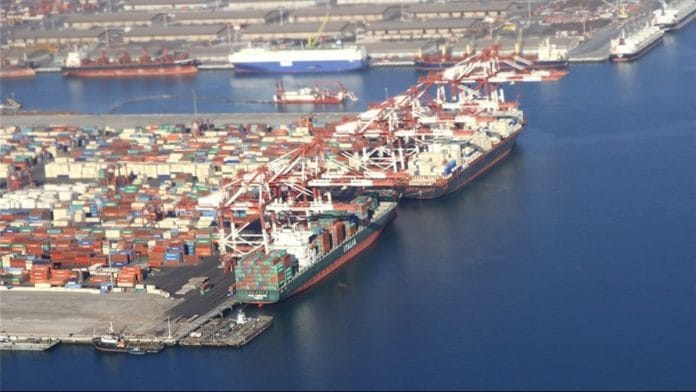New Delhi: Days after the US said India’s inking of a 10-year deal with Iran for the operation of Chabahar port carries “potential risk” of sanctions, the Ministry of External Affairs (MEA) remarked Friday that Washington is aware of the port’s importance, especially with respect to providing humanitarian aid to the Taliban-ruled Afghanistan.
Underscoring that the port agreement is a “major achievement” for New Delhi, MEA spokesperson Randhir Jaiswal said: “The United States understands the importance of Chabahar port for continued humanitarian supplies to Afghanistan and to provide it with economic alternatives.”
He added that the deal signed between New Delhi and Tehran reflects India’s commitment towards realising its potential as a “connectivity hub” for Afghanistan and other landlocked countries in the region.
India has been using the Shahid Beheshti terminal at Chabahar port to ship humanitarian goods to Afghanistan, bypassing the land route through Pakistan. Since 2018, India has supplied 85,000 MT of wheat, 200 MT of pulses and 40,000 litres of the pesticide, Malathion, according to the MEA spokesperson.
India signed a contract Monday for the Chabahar Port, which will allow India Ports Global Private Limited (IPGPL), a state-owned entity, to manage and operate a terminal in the port for 10 years, instead of having to renew a short-term contract every year, which was the case earlier.
Three days later, the US State Department said that any country having business dealings with Iran runs the risk of sanctions.
In an interview with AajTak earlier this week, US Ambassador to India Eric Garcetti was asked about the potential for sanctions. Adding that “further clarification” is awaited, Garcetti said, “One thing is clear, we know that Iran has been a force for terrorism, a force for exporting a lot of bad things, not just in the Middle East, but other places. And we’ve been very consistent.”
The MEA spokesperson did not provide a conclusive response on whether India would resume oil imports from Iran going forward. In 2019, India, under pressure from the Trump administration, had suspended energy imports from Tehran.
The Indian foreign ministry also revealed that there has been no request for consular access from the four Indian nationals arrested by Canadian police in connection with the murder of Sikh separatist Hardeep Singh Nijjar last June. Nijjar’s death has sparked a diplomatic row between New Delhi and Ottawa.
Also Read: Cricket, UPI & chhole bhature — US ambassador marks one year in India with a video
Mortal remains of ex-Indian Army officer arrive in India
The mortal remains of former Indian Army officer Colonel Waibhav Anil Kale (Retd.), who died in Gaza amid the war between Israel and Hamas, reached India Friday.
“Today, the Indian mission in Tel Aviv, in collaboration with the UN and Israeli authorities, were able to coordinate the transportation of the mortal remains of Colonel Kale. The mortal remains have arrived in India today. We’ve already conveyed our condolences,” the MEA spokesperson told reporters.
Colonel Kale (Retd.) served as the Security Coordination Officer in the UN Department of Safety and Security (DSS) in Gaza, and died on 13 May. Currently, the UN is conducting an investigation into the cause of the death, and whether it happened at the hands of Hamas or Israel.
“As far as the investigation of the issue is concerned, you would’ve seen the statement from the UN Secretary General’s office. They have set up a fact-finding panel. We remain in touch with relevant authorities, as far as the investigation is concerned,” said Jaiswal.
Swiss Foreign Secretary Alexandre Fasel arrived in India Friday for meetings with MEA officials, ahead of the global Ukraine peace conference slated to take place in Burgenstock from 15-16 June.
Fasel held talks with Sanjay Verma, MEA’s Secretary (West), the ministry said, adding that India is yet to decide on whether it will participate in the Ukraine peace conference.
(Edited by Mannat Chugh)






